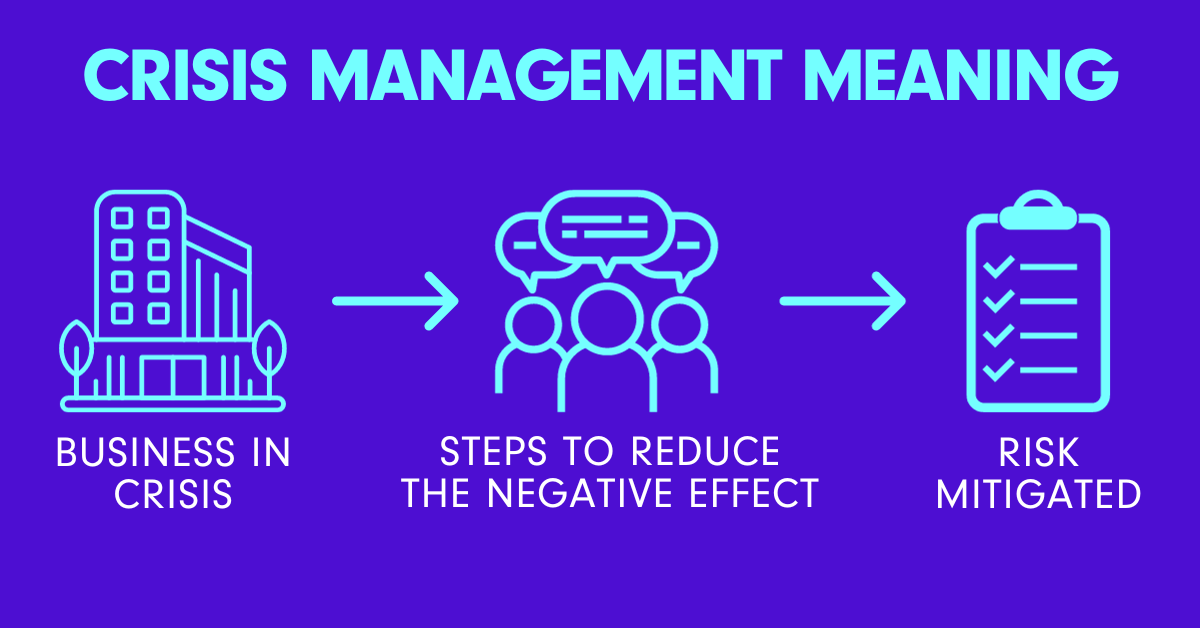Using thought leadership to tackle the construction skills gap

Over the years, thought leadership has become an immensely powerful tool within PR helping to estab…

It takes years of hard work to build your brand identity and secure a loyal customer base, but that can all be destroyed in a matter of hours if you don’t have a proper plan for when things go belly up. Do you and your colleagues know what to do in the midst of a crisis? Read on to find out more.
It’s no exaggeration to say that reputation management is one of the most crucial aspects of any business plan. When one unhappy customer protests outside a shop, they’re likely to leave a lasting impression on any passers-by, but when criticism is shared online it can easily snowball and influence thousands - quickly.
While very different, both of these scenarios need to be managed carefully. To have any chance at turning the tide of public opinion, brands need to take reputation management seriously.
In business, a ‘crisis’ is any event which threatens the stability and future prospects of an organisation. We’ve all seen it - the fall of a once-mighty market-leader, a salacious story that creates a media frenzy or a social media post that’s gone ‘viral’ for all the wrong reasons - but most don’t have a proper crisis strategy in place.
Whether you’re established in your field or embarking on a brand new venture, no company is immune to reputational damage. Your ‘crisis’ might not be quite as dramatic as the aforementioned examples but that doesn’t mean you shouldn’t prepare for the worst possible scenario. In fact, it might be the smartest business decision you ever make.

We all have our strengths and weaknesses but many (if not most!) of us dread the day we’re forced to speak in public. How would you handle it if the audience was a bunch of journalists intent on twisting your words, or a large group of very unhappy people who have gathered to proclaim that you’ve ruined their Christmas? Maybe you’re well-versed in public speaking but written communication really isn’t your thing? In any case, there’s no need to go it alone. To form your own crisis team, gather a group of your best writers, confident speakers and savvy strategists who can assemble whenever the need arises.
Another common mistake is to assume that senior management will have all the answers - what if they’re unavailable at the time of the crisis? Could junior team members step in to provide an understanding of what’s happening on the ground?
Once formed, the first item on the crisis team’s agenda should be to prepare a reputation management plan.
A good plan will;
A brilliant plan will;

So, you’ve spent the time and really thought about how you and your team should react in a reputational crisis, but where have you saved your plan? Who has access to it? Could it quickly become outdated?
If your plan is to work, it needs to be simple, consistent and efficient. In the midst of a crisis, no-one has time to read through a 300-page summary of the last 10 years, but every member of your crisis team will need to have a basic level of understanding. For these reasons, a solid reputation management plan will be concise, informative, and up-to-date.
In addition to working on public responses, your crisis team will need to consider and engage with all other involved parties, including;
This isn’t an easy task and it can’t be left to one individual, so an integrated approach will always yield the best results.
By now we hope it’s clear that reputation management really matters. If all of this is breaking you out into a cold sweat, it might be time to reach out to some reputation management specialists who can help you create a clear, actionable, and effective strategy.
Our reputation management experts can guide you through every step of the minefield and put you and your team at ease. Get in touch with us today to see how we can help.
Let's talk